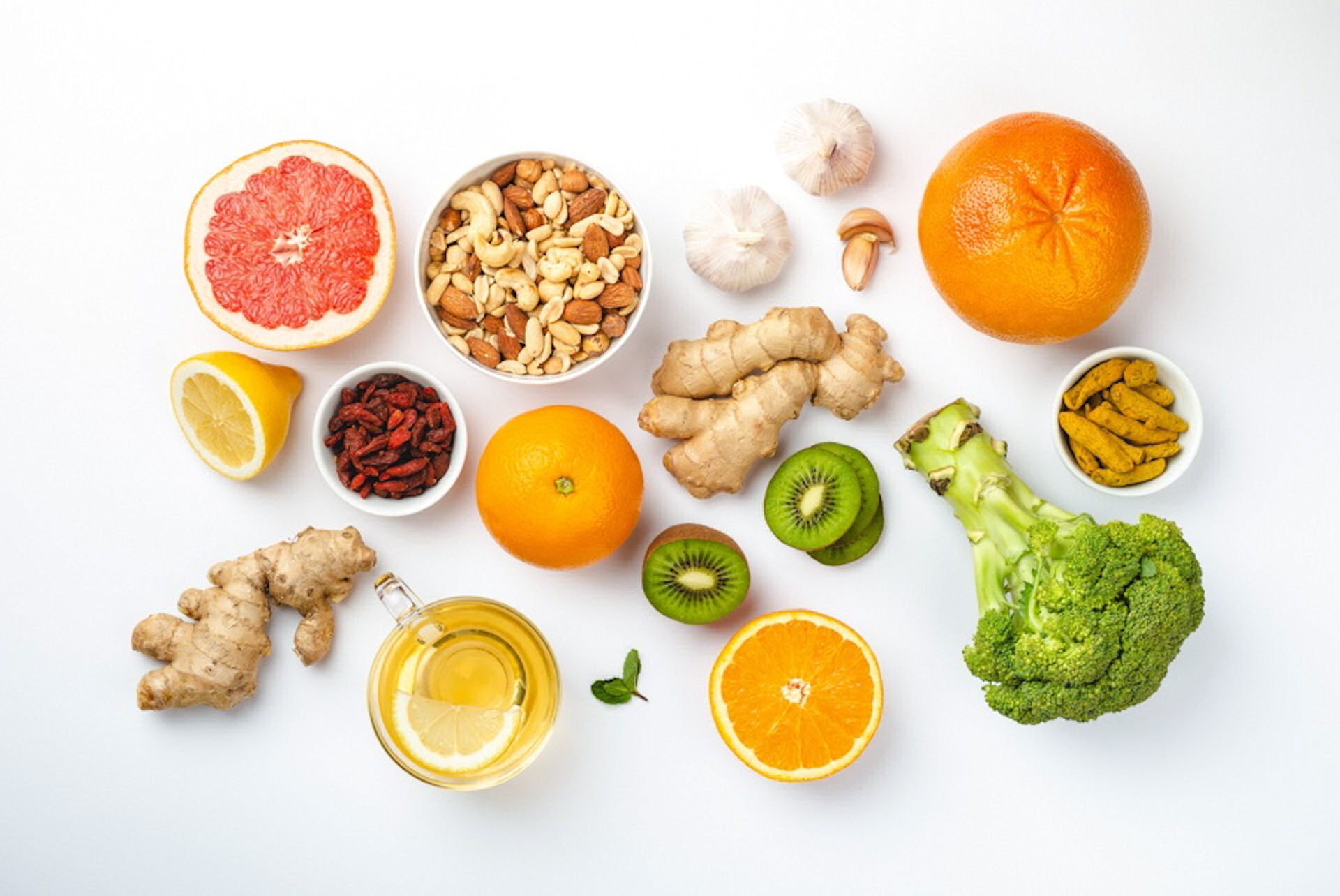When it comes to recovering from an illness or injury, nutrition plays a crucial role in the healing process. The food we eat provides the essential nutrients our bodies need to repair tissues, fight off infection, and maintain overall health. Westwind Recovery® understands the importance nutrition in recovery plays in the overall healing process. We offer nutritional support in Los Angeles, California.
What Is the Role of Nutrition in Recovery?
Nutrition plays a vital role in the recovery process for individuals dealing with addiction or mental health issues. The food we eat not only affects our physical health but also has a significant impact on our mental and emotional well-being. A healthy, balanced diet can help improve mood, energy levels, and overall function of the body, which are all crucial factors in the recovery journey. Additionally, proper nutrition can help reduce cravings and promote better decision-making skills, making it easier to maintain sobriety or manage mental health symptoms.
Importance of Adequate Nutrition
Adequate nutrition is important for everyone, but it becomes even more critical during recovery. When we are sick or injured, our bodies are in a heightened state of stress and demand more energy and nutrients to heal. Without proper nutrition, the healing process can be impeded, leading to delays in recovery or even complications.
In addition to supporting physical healing, adequate nutrition also plays a significant role in mental health during recovery. Studies have shown that malnutrition can contribute to feelings of fatigue, depression, and anxiety, all of which can hinder recovery.
What Benefits Does Focusing On Nutrition in Recovery Have?
Substance abuse and mental health disorders can take a toll on the body, causing malnutrition and other physical health issues. By focusing on nutrition in recovery, individuals can improve their overall physical health and combat any nutrient deficiencies that may have developed during their struggles.
A balanced diet consisting of all essential nutrients can help boost energy levels, which are often depleted during the recovery process. With more energy, individuals can engage in daily activities and exercise, which can further aid in their recovery journey.
Our brain requires proper nutrition to function correctly. By incorporating nutrient-dense foods into our diet, we can support our cognitive function and mood regulation. This is especially crucial for individuals recovering from mental health disorders.
Certain foods, such as those high in protein and healthy fats, can help reduce cravings for drugs or alcohol. Additionally, a nutrient-rich diet can also ease some of the uncomfortable symptoms experienced during the detox and withdrawal process.
Addiction and mental health issues can often lead to poor self-esteem and body image. By focusing on nutrition and fueling our bodies with wholesome, nourishing foods, individuals can improve their self-esteem and develop a healthier relationship with their bodies.
How Does Addiction Affect Your Appetite?
Addiction can have a significant impact on an individual’s appetite. Many substances, including drugs and alcohol, can suppress appetite, leading to malnutrition and weight loss. On the other hand, some individuals may turn to food as a coping mechanism for their addiction, leading to overeating and potential weight gain. Furthermore, addiction can alter brain chemistry and disrupt normal hunger signals, causing individuals to either have no appetite or constantly feel hungry. This can make it challenging to maintain a healthy and balanced diet, further exacerbating the effects of addiction on one’s physical and mental health.
Key Nutrients for Recovery
While all nutrients are essential for overall health, certain ones play a more significant role in the recovery process. These include:
Adequate protein intake is crucial for repairing tissue and building new cells. It also helps boost the immune system, making it easier to fight off infection.
This antioxidant vitamin is critical for wound healing and collagen production, which is necessary for repairing skin, bones, and connective tissue.
Another essential mineral for wound healing, zinc helps with cell growth and immune function.
These healthy fats have anti-inflammatory properties and can help reduce pain and swelling during recovery.
B vitamins are crucial for converting food into energy, which is especially important during recovery when the body needs more energy to heal.
Tips for Meeting Nutritional Needs During Recovery
Recovering from an illness or injury can often make it challenging to maintain a healthy diet. However, there are some tips and strategies you can follow to ensure you are meeting your nutritional needs during this time:
Focus on incorporating lean proteins, fruits and vegetables, whole grains, and healthy fats into your meals to ensure you are getting essential nutrients.
While it may be tempting to skip meals or rely on convenience foods when feeling unwell, making an effort to sit down and eat regular, balanced meals can significantly impact your recovery.
Dehydration can hinder the body’s ability to heal. Make sure to drink plenty of water throughout the day, and consider incorporating hydrating foods such as soups or smoothies into your diet.
In some cases, it may be challenging to meet all nutritional needs through diet alone. Talk to your healthcare provider about whether supplements may be beneficial for your recovery.
How Does Nutrition Play a Role in Healing the Body?
Proper nutrition is essential for the healing process of the body. When dealing with addiction and mental health issues, our bodies may have been deprived of important nutrients, leading to various physical health problems. By incorporating a balanced diet into our recovery journey, we can provide our bodies with the necessary vitamins, minerals, and macronutrients to support tissue repair, immune function, and overall healing. Additionally, nutrition can also help reduce inflammation in the body, which is often present during addiction and mental health disorders.
How Does Nutrition Support Brain Health During Recovery?
The brain requires a constant supply of energy and nutrients to function properly. When we are struggling with addiction or mental health disorders, our brain may not be receiving the necessary nutrients it needs, leading to cognitive impairments and mood disturbances. By focusing on nutrition in recovery, we can support our brain health by providing it with essential vitamins and minerals that support neurotransmitter production and communication.
This can help improve cognitive function, mood regulation, and overall mental well-being. Additionally, some nutrients, such as omega-3 fatty acids, have been linked to improved brain function and can aid in reducing symptoms of depression and anxiety. Therefore, incorporating these essential nutrients into our diet during recovery is crucial for supporting brain health and overall healing.
Treatment Programs Offered at Westwind Recovery® in LA
Westwind Recovery® in Los Angeles, California recognizes that every individual’s journey to recovery is unique, which is why they offer the following treatment programs to cater to each person’s specific needs.
Our intensive outpatient program provides structured therapy and support for those who have completed a detox or residential treatment program but still need continued care and support.
Westwind Recovery® specializes in treating co-occurring disorders, such as addiction and mental health issues. Our dual diagnosis program provides integrated treatment for both conditions simultaneously to promote overall healing and recovery.
Our partial hospitalization program (PHP) offers a more structured and intensive level of care than outpatient treatment, but less restrictive than residential treatment. It provides individuals with a supportive environment and access to therapy while still allowing them to maintain their daily responsibilities.
Our outpatient treatment program is best suited for individuals who have completed a higher level of care but still require continued support and therapy. It offers flexibility for individuals to attend therapy sessions while still maintaining their daily responsibilities, such as work or school.
Our mental health treatment program offers specialized therapy and support for individuals struggling with mental health disorders, such as depression, anxiety, and PTSD. It aims to address the root causes of these issues and provide tools and coping mechanisms for managing symptoms.
Our virtual intensive outpatient program offers the same structured therapy and support as the in-person intensive outpatient program, but it is conducted virtually. This allows individuals to receive treatment from the comfort of their own homes while still maintaining their daily responsibilities.
Our holistic treatment program incorporates a holistic approach to recovery, focusing on healing the mind, body, and spirit. It may include practices such as yoga, meditation, and art therapy in addition to traditional therapy methods.
Westwind Recovery® in Los Angeles Can Assist With Nutrition Support in Recovery

Furthermore, our facility provides healthy and nutritious meals for clients to enjoy during their stay with us. We believe that by addressing all aspects of an individual’s well-being, including nutrition, we can help them achieve lasting recovery and a healthier life overall. So if you or a loved one is struggling with addiction or mental health issues, contact us today for holistic and individualized care.

Dr. Deena is the Chief Clinical Officer of Westwind Recovery®, an award-winning outpatient treatment center in Los Angeles where she oversees the clinical and administrative program and treatment methods. Dr. Deena is a doctor of psychology and licensed clinical social worker since 1993. LCSW #20628. Originally from the East Coast, Dr. Deena has worked running treatment centers, worked as a therapist in psychiatric hospitals as well as school settings and currently has a thriving private practice in the LA area. Dr. Deena has appeared regularly on the Dr. Phil Show as an expert since 2003. She has also been featured on many other TV shows, podcasts and has contributed to written publications as well as podcasts.




